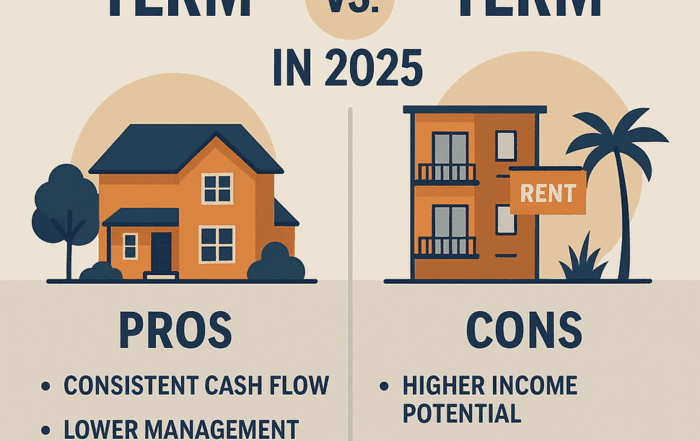
General Real Estate Investing: Vetting a Syndicate
As someone who’s been involved in various facets of real estate investing—from owning properties to structuring syndications—I’ve learned that vetting a syndicate requires a mix of research, intuition, and strategy. Syndications can be powerful tools for wealth-building, but they’re not for everyone. Let’s dive into how to vet these opportunities and ensure you’re making informed decisions.
Understanding Syndications
Syndications allow investors to pool their resources to purchase larger properties, such as apartment complexes or commercial buildings. A syndicator (also known as the sponsor) manages the property and operations while investors share in the profits. Here’s a breakdown of what makes them appealing:
-
Passive Income: Hands-off investing with regular returns.
-
Scale: Access to large, lucrative deals.
-
Tax Benefits: Depreciation and other write-offs often flow to investors.
However, syndications aren’t risk-free. Like any investment, they can be poorly managed, overly optimistic, or downright misleading.
Step 1: Assess Your Investment Style
Before you even consider a syndicate, ask yourself:
-
Do you prefer active management (owning and managing properties) or passive income (letting someone else handle the work)?
-
What’s your risk tolerance? Can you stomach a potential loss?
-
What are your financial goals? Are you looking for cash flow, long-term appreciation, or both?
Syndications are ideal for those who want passive income but are willing to relinquish control. If you’re more hands-on, owning properties outright may be a better fit.
Step 2: Vetting the Sponsor
The sponsor’s experience and integrity are critical. A great sponsor can turn an average deal into a success, while a poor sponsor can ruin even the best opportunities. Here’s how to evaluate them:
-
Track Record:
-
Look for sponsors with at least 10 years of experience and a history of navigating various market cycles.
-
Request their full track record, including exited and active deals.
-
Be cautious of sponsors who only highlight successes while hiding losses.
-
-
Specialization:
-
Opt for sponsors who focus on a specific niche (e.g., value-add multifamily in a particular market).
-
Avoid generalists who dabble in multiple asset classes without mastery.
-
-
Skin in the Game:
-
Sponsors should have their own money invested, typically 5-15% of the deal. This aligns their interests with yours.
-
-
Transparency:
-
Test their willingness to answer tough questions.
-
Google them extensively and check for lawsuits or regulatory issues.
-
Step 3: Evaluate the Deal
A good deal involves more than just attractive returns on paper. Dive deep into the following:
-
Market Analysis:
-
Is the property in a growing market with strong job and population growth?
-
Avoid markets where the sponsor has no experience.
-
-
Pro Forma Assumptions:
-
Scrutinize the financial projections. Are rent growth and expense assumptions realistic?
-
Ask what happens in a worst-case scenario, such as a market downturn.
-
-
Debt Structure:
-
Favor deals with long-term, fixed-rate debt to minimize refinancing risks.
-
Be cautious of short-term, high-leverage loans.
-
-
Legal Documents:
-
Review the Private Placement Memorandum (PPM) and Operating Agreement.
-
Look for clauses that overly favor the sponsor, such as high fees or restrictive investor rights.
-
-
Stress Testing:
-
Ensure the deal can withstand economic shocks, like a recession.
-
Ask the sponsor to share their stress test scenarios and outcomes.
-
Step 4: Diversify Your Investments
Never put all your eggs in one basket. Spread your capital across multiple syndications, sponsors, and markets. This reduces risk and gives you a broader perspective on what works best for you.
Step 5: Red Flags to Watch Out For
-
Unrealistic Returns: If a deal promises returns far above market norms (e.g., 20%+), it’s likely too good to be true.
-
Lack of Experience: New sponsors without a proven track record are risky.
-
Opaque Communication: If a sponsor avoids answering questions or providing documentation, steer clear.
-
High Fees: Excessive acquisition, asset management, or other fees can erode your returns.
Conclusion: Trust but Verify
Syndications can be a fantastic way to build wealth passively, but only if you do your homework. Focus on understanding your goals, vetting the sponsor, and analyzing the deal thoroughly. Remember, there’s no such thing as a guaranteed investment, so always proceed cautiously and diversify your portfolio.
Part 2: Additional Insights
After 20 years in the industry, I’ve seen syndications work well for certain investors, but vetting them is absolutely crucial. Syndications are great if you want to own real estate and enjoy the appreciation while sharing the risk and responsibilities with others. However, it’s all about the sponsor—dig into their track record. Have they been through economic cycles, or are they newer to the game? Stick with sponsors who specialize in a specific niche and have a proven history of success. Also, check if they have skin in the game (their own money invested), as it shows they’re confident in the deal and aligned with your interests.
If you’re considering alternatives, REITs are fantastic for super-passive investors who want steady, low-effort returns—usually about 2 points above a savings account—but you lose tax benefits and control. On the other hand, owning rental properties gives you full control and the best tax perks but also requires the most work and risk management.
Whichever option you lean toward, always diversify across deals and sponsors, and don’t hesitate to ask for references or do background checks. If the returns sound too good to be true, they usually are. Hope that helps, Nicholas! Let me know if you have more questions.
From my experience as an investor, former financial advisor, and syndicator, these steps have helped me navigate the complexities of real estate syndications successfully. If I can do it, so can you. Ready to learn more about this and other investing strategies? Let me guide you at propertyprofitacademy.com!
Keep it consistent, stay patient, stay true—if I did it, so can you! Let me guide you at propertyprofitacademy.com
Written by Jorge Vazquez, CEO of Graystone Investment Group & its subsidiary companies and Coach at Property Profit Academy.
OUR BEST ARTICLES
Opportunistic Buyers Are Back: Why Florida’s Real Estate Market Feels Like 2010 Again
Jorge Vazquez2025-07-09T01:10:13+00:00July 8th, 2025|Comments Off on Opportunistic Buyers Are Back: Why Florida’s Real Estate Market Feels Like 2010 Again
If you were around during the aftermath of the 2008 crash, you might remember that eerie silence around 2010—the [...]
Can Buying Real Estate in Florida Help You With Immigration?
Jorge Vazquez2025-07-07T18:54:31+00:00July 7th, 2025|Comments Off on Can Buying Real Estate in Florida Help You With Immigration?
Can Buying Real Estate in Florida Help You With Immigration? So you’re wondering, “If I buy a couple rental [...]
Long-Term vs. Short-Term Rentals in 2025: Which Strategy Wins?
Jorge Vazquez2025-07-07T03:10:20+00:00July 7th, 2025|Comments Off on Long-Term vs. Short-Term Rentals in 2025: Which Strategy Wins?
In 2025, the real estate world feels a little like a game show. Behind door one: long-term rentals—steady, reliable, [...]
What Does Cap Rate Mean in Real Estate (And Why I Actually Use It)
Jorge Vazquez2025-07-05T13:43:14+00:00July 5th, 2025|Comments Off on What Does Cap Rate Mean in Real Estate (And Why I Actually Use It)
What Does Cap Rate Mean in Real Estate (And Why I Actually Use It) Alright, I’m gonna break this [...]
Real Estate Investment Analysis: How to Know If a Deal Is Actually Worth It
Jorge Vazquez2025-07-05T13:37:26+00:00July 5th, 2025|Comments Off on Real Estate Investment Analysis: How to Know If a Deal Is Actually Worth It
Real Estate Investment Analysis: How to Know If a Deal Is Actually Worth It You know how some people [...]
What Kind of Passive Income Do You Really Want? (And Why I Still Love Ugly Rentals)
Jorge Vazquez2025-07-04T16:05:15+00:00July 4th, 2025|Comments Off on What Kind of Passive Income Do You Really Want? (And Why I Still Love Ugly Rentals)
What Kind of Passive Income Do You Really Want? (And Why I Still Love Ugly Rentals) You [...]
Meet our Team of Experts!
Meet Cody Bergstrom, Your Expert in Finding Deals
My team and I have over 20 years of experience in real estate. We have strong relationships with wholesalers, probate lawyers, sellers, and others in Florida. I aim to align your investments with your vision and deliver exceptional results. Contact Vanessa to schedule a meeting: https://graystoneig.com/cody
Meet Marylyn Patankar, Your Property Manager Partner
Hello, I’m Marylyn Patankar, the Field Manager and New Client Ambassador at Graystone Property Management. I educate investors about our perks, onboard new landlord investors, and manage on-site operations. Schedule a meeting with me here: https://graystoneig.com/marylyn

Meet Lisa Kaye Price, the LendingGig Top MLO
Lisa-Kaye Price – Real Estate Lending Specialist
With 20 years in real estate, Lisa-Kaye is dedicated to helping clients achieve their investment goals through strategic financing. She and her team focus on securing the best financing solutions to maximize leverage – a unique advantage of real estate investing.
Offering various options, including conventional loans, asset-backed and private money solutions, and programs for foreign nationals, Lisa’s expertise ensures clients get the support they need, whether buying new properties or refinancing.
Schedule a meeting with Lisa: https://graystoneig.com/lisa-kaye-price








